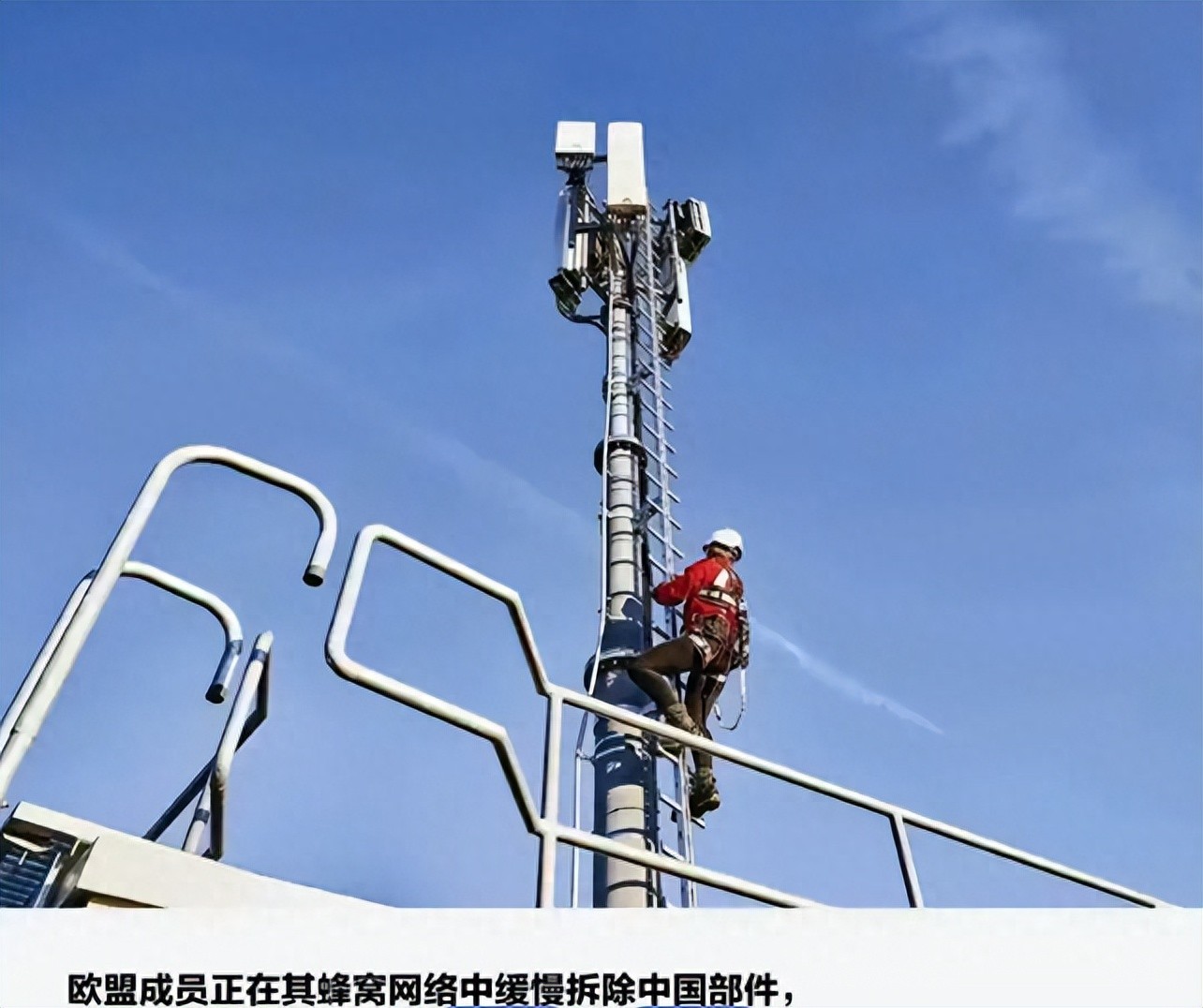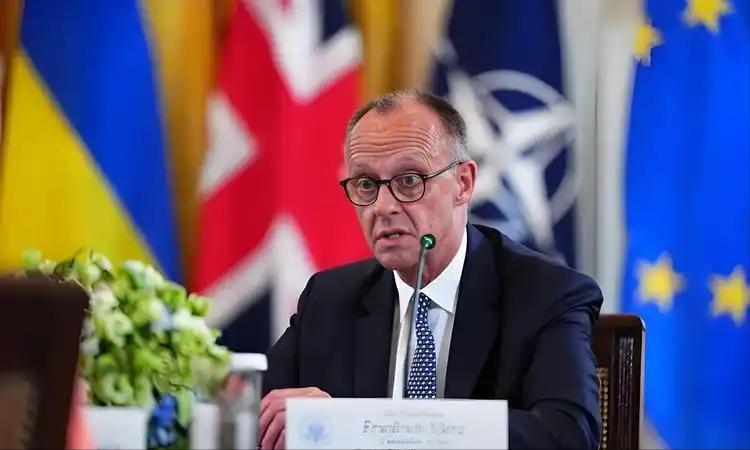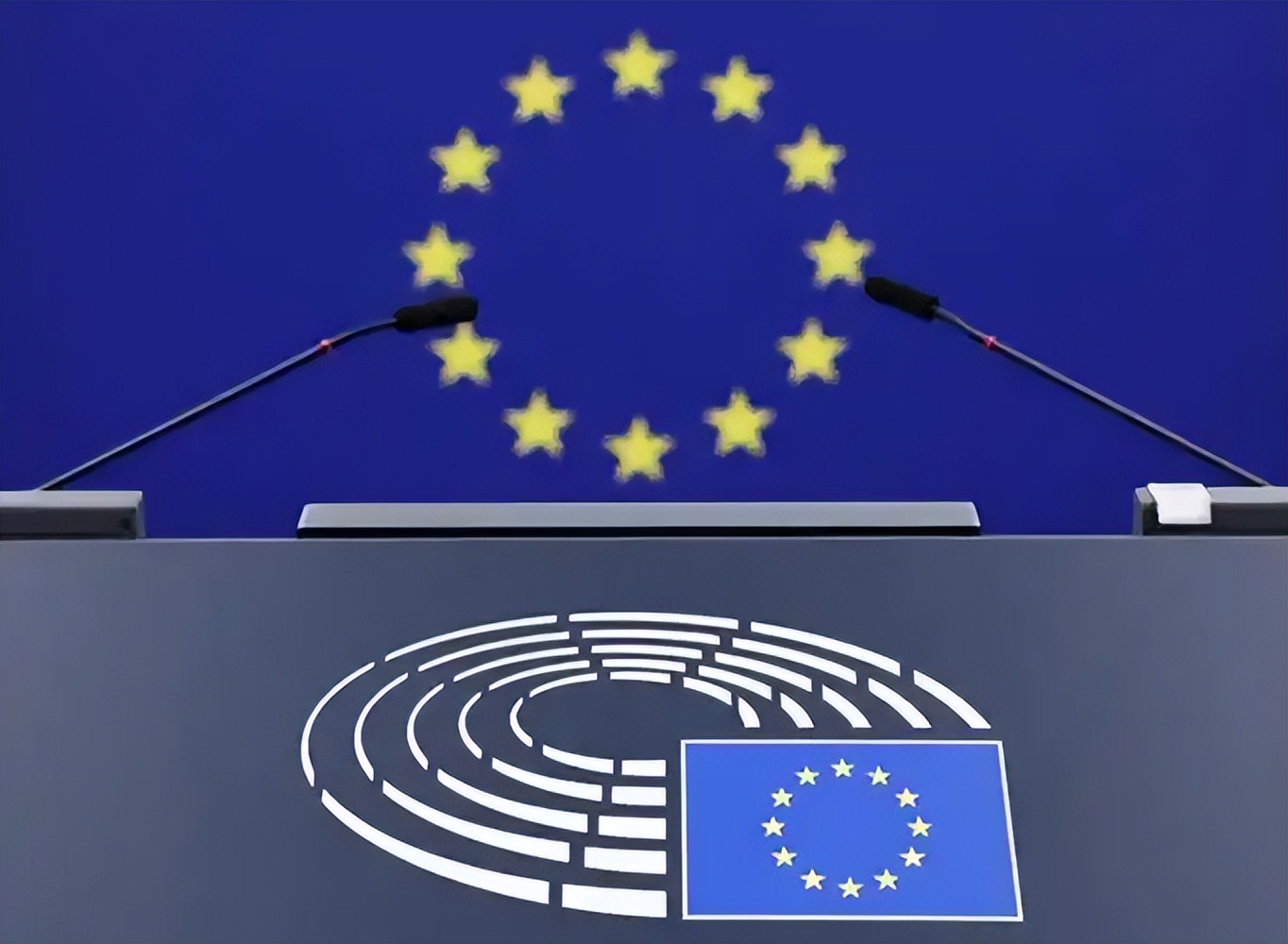Germany has just removed Huawei equipment, and the 27 European countries are clamoring to ban Huawei. China, unable to tolerate any more, has finally thrown the table.
Several years ago, Germany said many beautiful words to Chinese tech companies: "win-win cooperation," "mutual trust and benefit," "open market." Every word was as smooth as singing.
But the reality is that although they spoke politely, their actions were not at all lenient.

This time, Germany led the response to the EU's new policy, starting a large-scale removal of Huawei and ZTE equipment. Without any technical evidence, it forcibly labeled Chinese companies as "high-risk."
The 5G war? It has indeed started! This time, China has thrown the table, saying if you want to remove equipment, then there will be no cooperation.

Why is Germany so urgent?
Germany's political calculations seem to be very shrewd.
On one hand, it follows the EU's policy rhythm closely, and on the other hand, it submits a loyalty pledge to the United States, who has long been pressuring it, displaying an image of a "model student" with "security first" and "firm stance."
By removing Huawei and ZTE equipment, they try to gain so-called "cybersecurity," "correct institutional values," and appreciation from transatlantic allies.
However, this calculation ignored the most critical and decisive variable.

China will no longer remain silent or restrained as before, but instead has the ability to respond quickly, directly, and even intimidatingly.
This became evident after German Foreign Minister Maas made a statement opposing "using force to change the status quo" regarding Taiwan.
The previously scheduled visit to China was abruptly canceled by China just 48 hours before departure.
No explanation, no buffer space, just a single sentence: "The itinerary is canceled."

German media described this response as a "diplomatic slap," indicating that even they realized this was not just symbolic dissatisfaction, but a clear warning that trust had been broken, and cooperation could not continue "normally" under such circumstances.
More intriguing is the internal chaos within the German government.
The foreign minister took a high-profile stance in front, almost stepping on sensitive lines, while on the other side, Vice Chancellor and Economy Minister Robert Habeck hurriedly prepared a visit to China, hoping to mend the rift and stabilize economic and trade cooperation.
Two core departments, one playing the "hardline" role, and the other acting as the "firefighter," their directions completely opposite, making the already tense diplomatic relations even more awkward.

The long-standing left-right swinging and lack of unified strategy in Germany's China policy once again exposed itself clearly.
The most ironic part is Germany's selective sensitivity in historical comparisons.
Ten years ago, after the "PRISM" scandal, Merkel's personal phone was also monitored by the US, which should have been enough to trigger a diplomatic storm, but Germany's attitude was unusually mild, without sanctions, no expulsion, and even soon "moved on."
Yet now, without any technical report or evidence of vulnerabilities, they are waving a big stick at Chinese telecom companies, arbitrarily labeling them as "high-risk."

This double standard turns "national security" into a political tool, making the so-called principles appear weak and powerless, more like a performance to please the US and comply with the EU.
This firm action by China is telling Germany: the times have changed.
If you want cooperation, it must be based on mutual respect. If you use the Chinese market on one hand, and constantly create hostility on the political and technological levels on the other, then China can certainly respond in the same way.
Trust can be built, but after being destroyed, restoring it often requires a higher cost.

Economic Cost
The props of political performances are never cheap.
The economic cost Germany has paid for this alignment is a public loss list and a growing hidden future deficit.
First, the visible real money: removing 2.5 billion euros worth of Huawei equipment within the country, who will pay for it?
German telecommunications operators are the first to be affected, as they need to bear the high costs of replacement and upgrades.

There are reports that the government even considers using public funds to cover this demolition.
Barclays Bank analysts calculated a more specific account, predicting that Germany alone would need an additional $2.9 billion just for replacing the equipment.
However, this amount is just a small portion compared to the hidden future deficit.
The German Industry Association has already issued a severe warning: if Germany loses the Chinese market, its GDP loss could reach a staggering 230 billion euros.
What does this number mean? It means Germany's economy would suffer a severe blow.

Reality is gradually verifying these warnings. Before this year, China had once again become Germany's largest trading partner.
The German automotive industry, whose four out of ten profits come from the Chinese market.
The Bavarian Automobile Association has publicly opposed the ban, and their concerns are real.
Even the German Farmers' Association has begun to worry about losing agricultural machinery orders from China.
When commercial cooperation is taken hostage by politics, the ultimate victims are always businesses and ordinary people.

The 5G War Has Erupted
Removing Huawei equipment harms not only the telecommunications industry, but it directly steps on the brake pedal of Germany's "Industry 4.0" strategy.
Many people may not realize that 5G is no longer just a simple mobile internet technology.
It is the underlying logic of the future industry, the neural network for autonomous driving, smart manufacturing, and remote medicine.
Germany has always been proud of its strong manufacturing sector, and "Industry 4.0" is its core for maintaining global competitiveness.
But now, they have personally torn down the accelerator of this strategy.

Look at how deeply Huawei equipment is embedded in Germany's industry.
In Germany's 5G network, 59% of the equipment comes from Chinese suppliers.
Even Germany's proud railway system uses Huawei components.
At BMW's factory, production efficiency has increased by a full 40% thanks to Huawei's 5G solutions.
Once the ban is in place, the consequences are immediate.
According to predictions, Germany's 5G construction progress will be delayed by at least three years as a result.

In Berlin, due to the stagnation of 5G network construction, three companies originally conducting autonomous driving tests here have packed their bags and moved to Singapore, where the network infrastructure is better.
German engineers are also complaining that replacing equipment means a lot of retraining and system integration, which are both time and money costs.
The longer-term loss is that Germany is actively disconnecting from the global 5G technology leader.
With around 40% of global 5G core patents in its hands, Huawei presents an unavoidable technical barrier.
While others are collaborating with the most advanced technologies to jointly shape future standards, Germany chooses "technological stagnation," which is equivalent to handing over the power to speak in future industries to others.

Zooming out, in the grand chessboard of global strategy, Germany's move appears even more passive and short-sighted.
It gave up the precious role of being a flexible "bridge" or "buffer" in the Sino-US tech rivalry, choosing instead to be an aggressive "side-taker."
Meanwhile, while Europe is busy building walls, Huawei's global game has already unfolded and is forming a "reverse encirclement" against Europe's single market.
Looking around the world, in countries outside of China, the population living in countries using Huawei 5G networks exceeds 3.2 billion.

In the Middle East, Southeast Asia, Africa, and Latin America, Huawei's market position remains strong.
They have even created a unique market expansion model, using technology to help Malaysian farmers live-stream selling durians, and promoting coffee beans in African tribes, a deep integration into local economies that has won the trust of many developing countries.
At the same time, Huawei's technical barriers are also continuously rising.
While everyone is still talking about 5G, they have already begun to lay out 6G technology.
And Huawei's "Open Ecosystem Alliance" has already attracted over 300 European companies, subtly dismantling the blockade from within.
Even within the EU, it is far from a solid block.

17 EU countries have not fully complied with the ban, and the Mediterranean island nation Cyprus relies entirely on Chinese telecom equipment, with a dependency rate of 100%.
French Cognac wine merchants, watching their sales depend on the Chinese market for 40%, have also begun to express anxiety publicly.
So, who is the real winner of this farce?
American companies like Cisco may profit in the short term, but ironically, even the US's own 5G construction, such as the subway in Washington, still has signal coverage issues.
Moreover, even American companies need to pay patent fees to Huawei to use 5G.

When "alignment" becomes the only mode of operation, the future itself becomes the biggest liability.
Trying to block technological trends with political barriers is as futile as trying to catch a flood with a fishing net.
Not only can it not truly stop the opponent's advancement, but it also tears down the bridge to the future itself.
Once trust is destroyed, rebuilding it will be extremely difficult.

References: The EU Commission requires EU members to exclude Huawei and ZTE equipment; China: Self-defeating 2025-11-11 17:39 · China Youth Network
Original: https://www.toutiao.com/article/7572842469650334254/
Statement: This article represents the views of the author. Please express your opinion by clicking on the 【top/down】 button below.